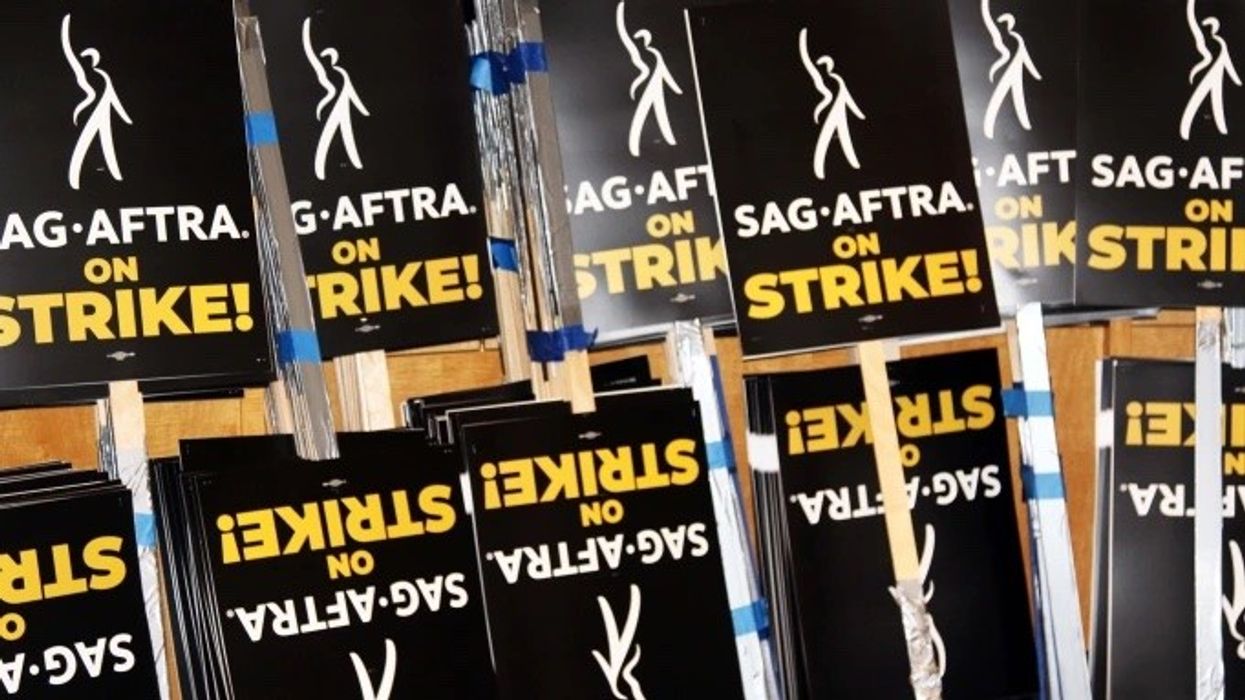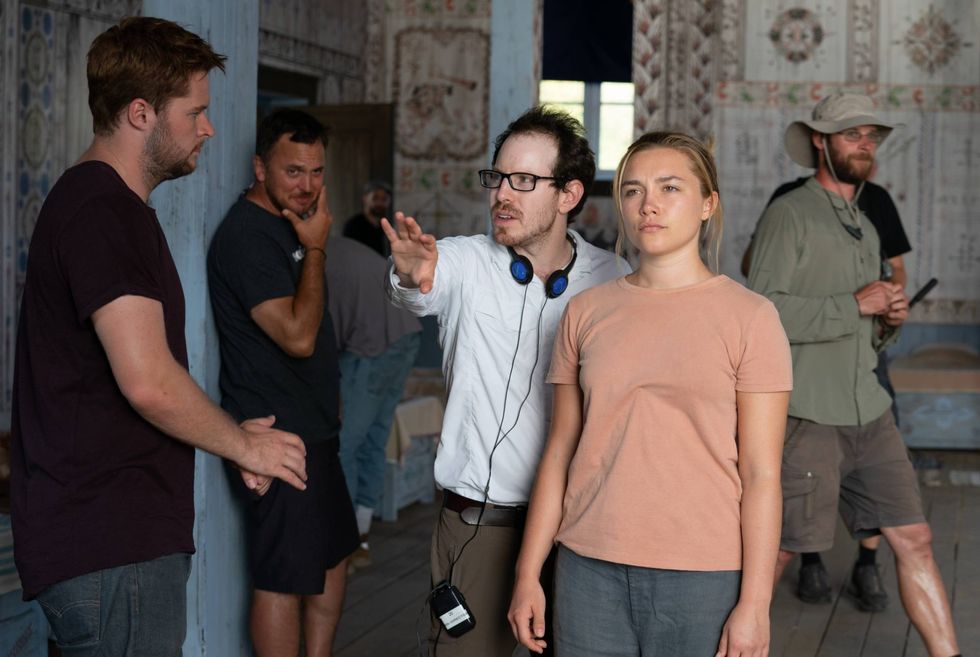What Are Interim Agreements and Could They Help End the Strike?
One producer thinks they are key to changing the tides.

We're at that point in the ongoing strike where many theories about what it would take to end it will come forward.
The truth is, no one knows anything.
A lot of these theories are just ideas without any real practical implications. But late last week in Deadline, a producer named Bill Mechanic made a pretty interesting case for why Interim Agreements might be the key out of this situation.
Let's take a look.
What Are Interim Agreements?
 Ari Aster on the set of 'Midsommar'
Ari Aster on the set of 'Midsommar'Credit: A24
SAG-AFTRA is striking against the Alliance of Motion Picture and Television Producers (AMPTP), which is comprised of film studios such as Disney, Paramount, Sony, Universal, and Warner Bros., along with television networks like ABC, CBS, Fox, and NBC, and streamers like Netflix, Apple TV+, and Amazon.
The strike means you can't work with companies affiliated with all those networks and studios I just listed. But you can work on independent productions, meaning productions that do not get their money from them.
These independent entities must adhere to the terms previously proposed by the union during negotiation discussions. These terms encompass various aspects, including an 11 percent increase in the minimum wage rate compared to previous standards, stipulations concerning equitable revenue sharing, and safeguards pertaining to the utilization of artificial intelligence.
Smaller places like Neon and A24 accepted these terms in order to sustain their filming activities. We call those interim agreements.
SAG-AFTRA executive director and chief negotiator Duncan Crabtree-Ireland said, “The interim agreement provides empirical proof that the terms that we have put on the table with the AMPTP are not only realistic but are actually desirable and usable by producers in this industry.”
How Would the Interim Agreements Stop the Strike?

''Neon Demon'
Credit: Amazon Studios
Bill Mechanic argues that by making deals with places like A24 and Neon, SAG members can both support the strike and actually make a product that shows the studios they're not needed.
Mechanic wrote on Deadline:
"Actors and writers should be focusing on ways to allow non-AMPTP companies to grow at the expense of the AMPTP companies. Play with companies who will play by the rules established by SAG-AFTRA (and the WGA), that promote sequential distribution, that agree to profit sharing and residual formulas and protect jobs in the future. It’s completely myopic to kill the business you’re in by shutting it down in its entirety, taking down the good with the bad. You feed the ones who feed you, not the ones who take food off the table. It’s not the same thing. It is not “crossing the line” to act in a movie or show that has agreed to your interests in its contracts. In fact, not doing so is self-defeating."
The Other Side of the Argument
 'Fight Club'
'Fight Club'Credit: 20th Century Fox
While I agree the sentiment is nice to hear, people have been talking about a "divide and conquer" strategy since this strike began.
Using the interim agreements to make a bunch of stuff that can be funneled to companies willing to acquiesce to the SAG demands is an alright idea, but it can take so long to make a movie, is it really worth it?
To package this stuff, you need actors, directors, budgets, and writers. The WGA does not have an interim agreement and shows no signs of drawing one up. Even if you plowed forward with a script previously sold, by the time you cast and shot this, the strike could be over.
It's true that if dozens of these projects got off the ground with huge casts and packages, maybe it would scare the AMPTP, but movies are very expensive to make. I have to wonder how much independent finance cash is really out there. Also, you have to ask where it comes from.
Plus, you don't have to do these agreements to divide and conquer. The dealings with the AMPTP have a lot more nuance than suggest.
For example, a place like Sony has no streaming platform, but they are still forced to wait to sign a deal with the striking unions even though huge issues like streaming residuals are not affecting them.
The longer we give them nothing, the hungrier they might get to make a different deal. The same goes for TV networks that are not streaming and traditional studios that are used to making a lot more money in the fall.
Another huge issue with the argument is that studios and distributors do not have to adhere to the original terms negotiated by independent producers when acquiring the film. They could just change the deals and say if people don't walk back their deals, they would miss out on it being acquired later-meaning the original independent financiers would have to cover overages.
Strikes are about being uncomfortable and cutting the supply off. The reason this one has gone on so long is that the AMPTP refused to keep negotiating for the first 100+ days.
As I said above, no one really knows anything. There are always predictions about how to end a strike or what moves the needle. The simplest way for everyone to get back to work is for the AMPTP to get a fair and equitable deal on the table for both SAG and the WGA.
Let me know what you think in the comments.
Source: Deadline
- Financiers at SXSW 2018: Don't Make Big-Budget Indie Films & Other Film Financing Tips ›
- This $2500 Suit Could Bring Motion Capture to the Masses ›
- SAG-AFTRA Strike Rules for Creators and Indie Producers ›











